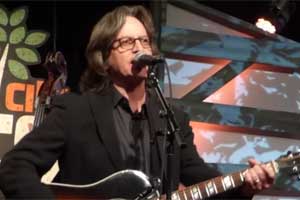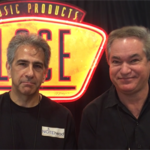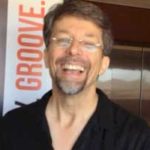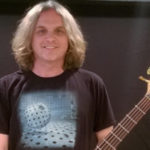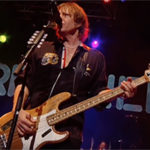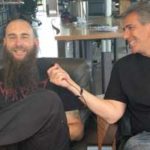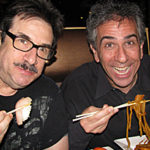Nitty Gritty Dirt Band founder on the guitar influences of his 50-year career
By Gary Graff
November 11, 2016
When the Nitty Gritty Dirt Band formed during 1966 in Long Beach, Calif., there was no way Jeff Hanna, who remains in the lineup with fellow guitarist Jimmie Fadden all these years later, could have imagined celebrating a 50th anniversary. But that’s what the veteran group — call it folk or country or country-rock or Americana, it all fits — has been doing for more than a year, since September 2015 all-star bash at the Ryman Auditorium in Nashville, captured on the new Nitty Gritty Dirt Band and Friends: Celebrating 50 Years album.
During that time the group has gone through 19 members, including Jackson Browne, and released an extensive catalog of music highlighted by the definitive version of Jerry Jeff Walker’s “Mr. Bojangles,” the No. 1 country hits “Long Hard Road (The Sharecropper’s Dream)” and “Fishin’ in the Dark” as well as a pair of award-winning, guest-studded Will the Circle Be Unbroken albums. The group is as healthy and vibrant today as it’s ever been, albeit a bit longer in the tooth, and if Hanna has his way the circle will remain unbroken for some time to come.
FGPO: Was there a point where you figured out that Nitty Gritty was built to last?
Hanna: You know, when we started we were into folk music. That was our thing, with a lot of influences from early rock ‘n’ roll as well because of older siblings. We were hearing that, too. It was our earworms. Then we shifted from jug band music to California country rock, and then in the ‘80s we realized the music we were making was being played more on country radio, so we kind of went there. In the end you can put us under the umbrella of Americana. There was enough change that somewhere along the way we figured out we can be doing this for awhile.
FGPO: You’ve done a lot on both acoustic and electric guitar. What’s the difference for you in playing each?
Hannah: Well, they both certainly have their thing that the other can’t do. There’s something about having a great acoustic guitar in your lap and literally you can feel it vibrating on your rib cage, which is pretty amazing and takes you to a different place. That’s where I started. My heroes were people like Doc Watson and Mississippi John Hurt who made his first records in the ‘20s and then was rediscovered in the folk revival of the ‘60s. That was a huge impact, a real imprinting thing. I still listen to him at least once or twice a week.
FGPO: You’ve identified John Prince as a big influence on your playing, too.
Hanna: Definitely. He’s got a thing he does on guitar; he does a really good sort of a driving right hand, flatpicking Jimmy Martin kind of rhythm guitar. And there’s Elvis [Presley] if you want to get into rockabillyville, that kind of pushing the track. Then [Prince] has a simple little [Merle] Travis-style finger thing he does. When you learn how to do that little riff, your right hand gets going and your left hand goes wherever it wants to.
FGPO: And when you plug in?
Hanna: With electric I find it’s a little different. I get a little more mathematical about it. It’s more tonal; you get a great sound out of the amp and that’ll take you a ways. But acoustic stuff…I play a lot of mandolin now, which is strange. I’ve owned a mandolin since I was a kid. I only knew three chords until a couple of years ago, when I had a hand injury. I had carpal tunnel surgery, actually on both hands, but the main offender was my left hand, ’cause I played too many chords too many times. The mandolin was great therapy; the chord shapes are different, and I’m not totally dedicated to the mandolin.
FGPO: When did you start playing electric?
Hanna: I was pretty young. But I was in a band with two guys who played good electric guitar — Jimmie Fadden and Jimmy Ibbotson. [Fadden] is a really good lead player, too; he taught me how to do proper vibrato with my left hand and showed me some basics. The first time Duane [Allman] ever heard somebody really burn it up on slide guitar was Jimmie Fadden, believe it or not.
FGPO: Who were some of your models on the electric?
Hanna: The guys that really got me after the British Invasion were [Jeff] Beck and [Eric] Clapton, the obvious choices. I was a huge Jeff Beck fan. I went to see the Yardbirds at the Santa Monica Civic Center when I was in high school. Unbeknownst to me, ’cause there was no Internet back then, [Beck] wasn’t there and people were screaming: “Where’s Beck?! We want Beck?!” And the guy who was playing guitar was Jimmy Page! So I sort of got over it because he’s pretty good, too. But Jeff Beck is still one of my heroes. I can’t really play his stuff, but I love it.
FGPO: The blues side appealed to you more than the psychedelic, then?
Hanna: Well, I did love Hendrix, who I can’t even emulate but sure love the way he played, and I was a huge fan of Cream and everything Clapton’s done since the John Mayall [Bluesbreakers] record has been top-notch to me; even his weird ‘80s excursions I think were great music. And Peter Green with Fleetwood Mac at the time. So, yeah, I guess that whole kind of British blues invasion was really what drew me in.
FGPO: How about country at the time, or your fellow country rockers?
Hanna: Well, even though we were a jug band, we played with a lot of great bands at the beginning. We were touring with the Doors and playing with an early version of Steppenwolf and Moby Grape. There was Buffalo Springfield, of course, [Stephen] Stills and Neil Young — especially Stills had a big influence on my state at that point. And the Allman Brothers; I shared a house with those guys for awhile, in 1967. They were called the Hour Glass back then, and hearing a guy like Duane Allman up close changed it for me, too.
FGPO: Talk about those days.
Hanna: Sitting around with Duane and watching him play, his touch and his tone; as famous as Duane is as a slide guitarist — and he’s one of the greatest that ever did it — his lead playing was amazing and lyrical and wonderful and still lives, thank goodness. Then Duane turned me on to Dickie Betts, who became another touchstone for me. His tone and note choices; he’s got a country thing, “Ramblin’ Man” is a good example. Just his approach; he’d play these double-stop pedal steel licks I felt were intriguing. he was amazing.
FGPO: Anybody you’re digging these days?
Hanna: Well, Derek Trucks, which isn’t a surprise; he’s in another zone altogether. And I love Sonny Landreth — talk about great slide guitar, eh?
FGPO: You’ve been celebrating the 50th anniversary for awhile. How’s it been?
Hanna: This year’s been a blast. It’s been kind of ongoing, but it’s really been fun The hardest thing about it is the obvious things — getting no sleep and eating crappy food. That’s the road part, and it’s harder than when you’re in your 30s — like when you’re pushing 70. But that being said, when you hit the stage for a couple of hours, it’s a drug, a really good drug. Maybe a better word is a tonic [laughs]. But we’re getting ready to shut it down for the year, and then we’ll have a chance to go: ‘Yeah, man…’ and think about what happened.”
FGPO: Any talk about new recording?
Hanna: Yes, in sort of in an amorphous sense. We’ve been so busy on the road and everything we haven’t had a whole lot of time to start thinking about what’s next. We have a bunch of tunes and we’ve talked about that already. I think everybody wants to put their feet up for awhile over the holidays and think about things, and then we’ll see what we want to do. When you’re a veteran act, a lot of people don’t want to hear your new music, but I still love writing new stuff.
